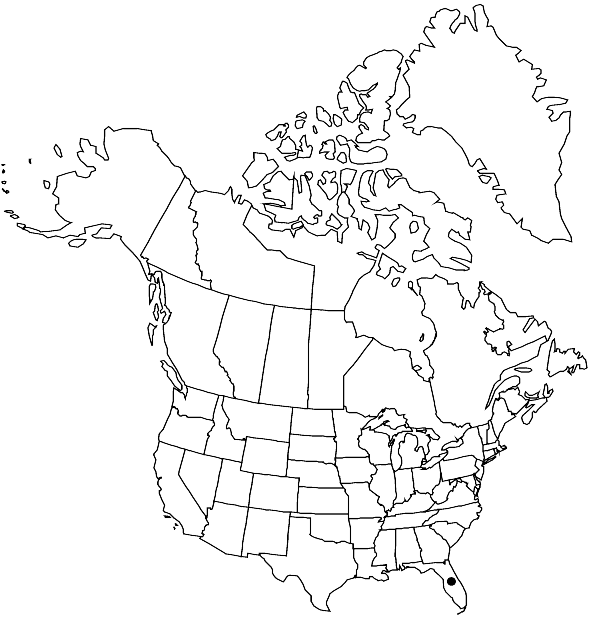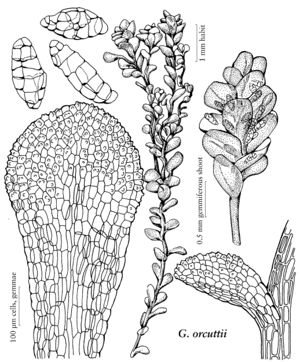Difference between revisions of "Gymnostomiella orcuttii"
Jamaica Naturalist 1(4): 15. 1928,.
imported>Volume Importer |
imported>Volume Importer |
||
| Line 45: | Line 45: | ||
|publication year= | |publication year= | ||
|special status= | |special status= | ||
| − | |source xml=https:// | + | |source xml=https://bitbucket.org/aafc-mbb/fna-data-curation/src/2e0870ddd59836b60bcf96646a41e87ea5a5943a/coarse_grained_fna_xml/V27/V27_884.xml |
|subfamily=Pottiaceae subfam. Pottioideae | |subfamily=Pottiaceae subfam. Pottioideae | ||
|genus=Gymnostomiella | |genus=Gymnostomiella | ||
Latest revision as of 21:29, 5 November 2020
Plants very small, delicate, often branching. Stems ca. 1.5–3 mm. Stem leaves 0.3–0.4 mm, serrulate, apex rounded; costa ending at mid leaf; distal medial cells 14–18 µm in width, 1–2:1, papillae 1–2 per lumen. Specialized asexual reproduction occasional, by elliptic gemmae. KOH laminal color reaction negative, yellow or black.
Phenology: Sporophytes not seen in area of flora.
Habitat: Limestone, phosphate rock
Elevation: low elevations (0-40 m)
Distribution

Fla., Mexico (Guerrero, Tamalipas, Veracruz), West Indies, South America (Brazil), Pacific Islands (Galápagos Islands).
Discussion
Gymnostomiella orcuttii is restricted in the flora area to Alachua, Dade, Jackson, and Marion counties. As discussed previously (R. H. Zander 1993), I disagree with placing G. orcuttii into the synonymy of the Asian G. vernicosa (J. D. Hooker) M. Fleischer (P. L. Redfearn Jr. 1991). The American material is more robust and is fairly consistent but not totally so in its usually larger leaf cells (14–18 µm wide) and 1–2 papillae per lumen (rather than 12–14 µm wide and 1 papilla per lumen). The genus needs revision.
Selected References
None.
